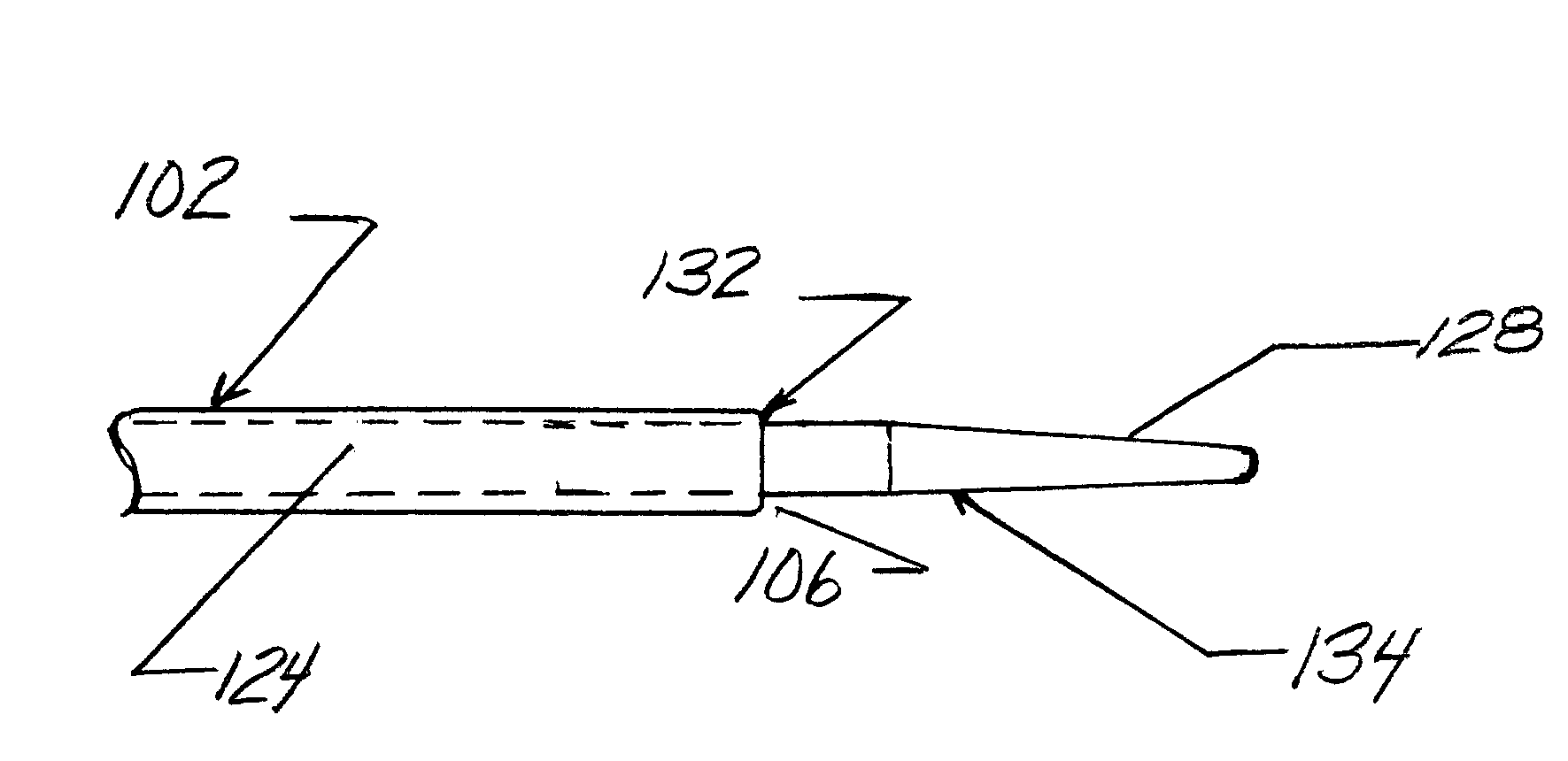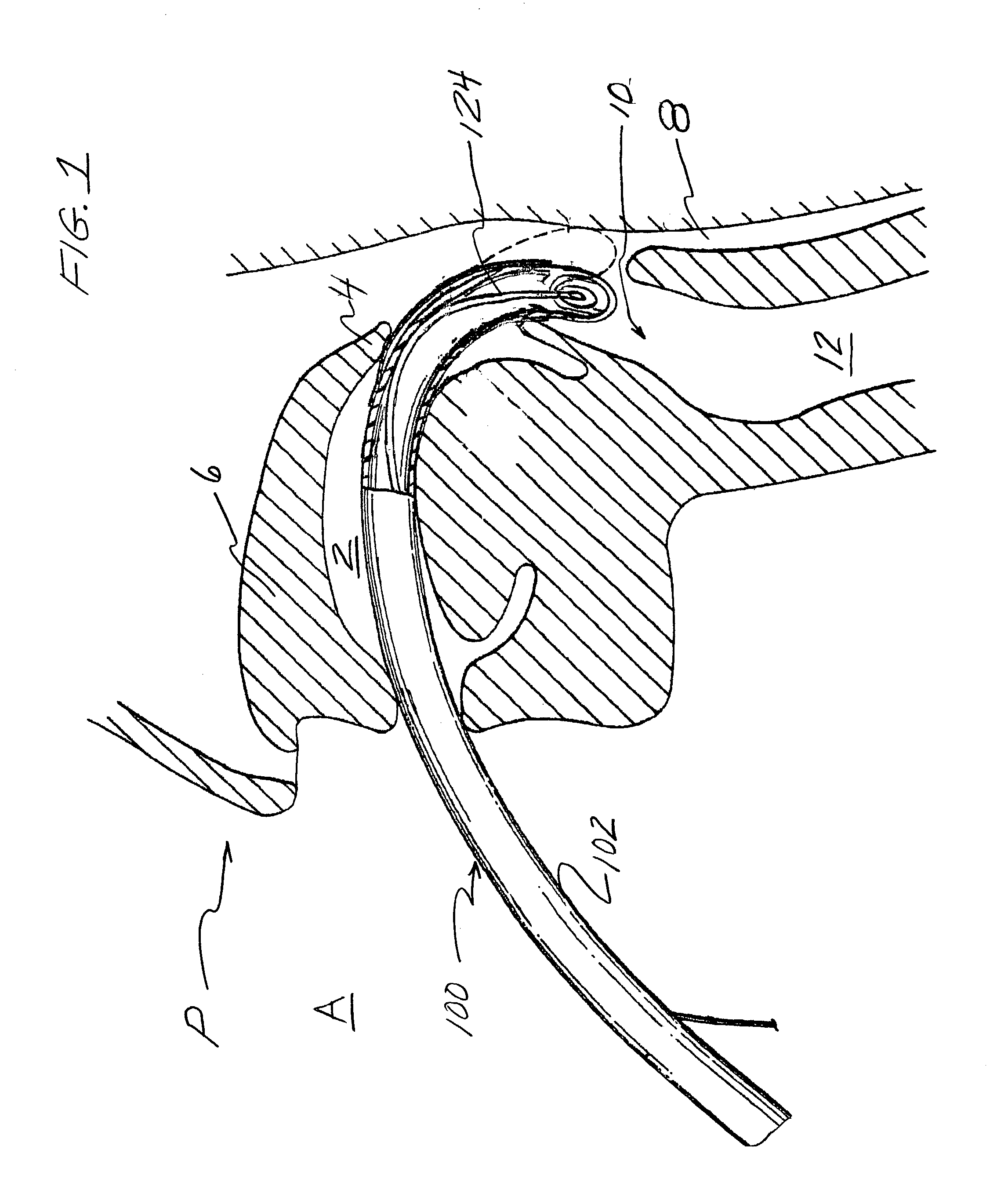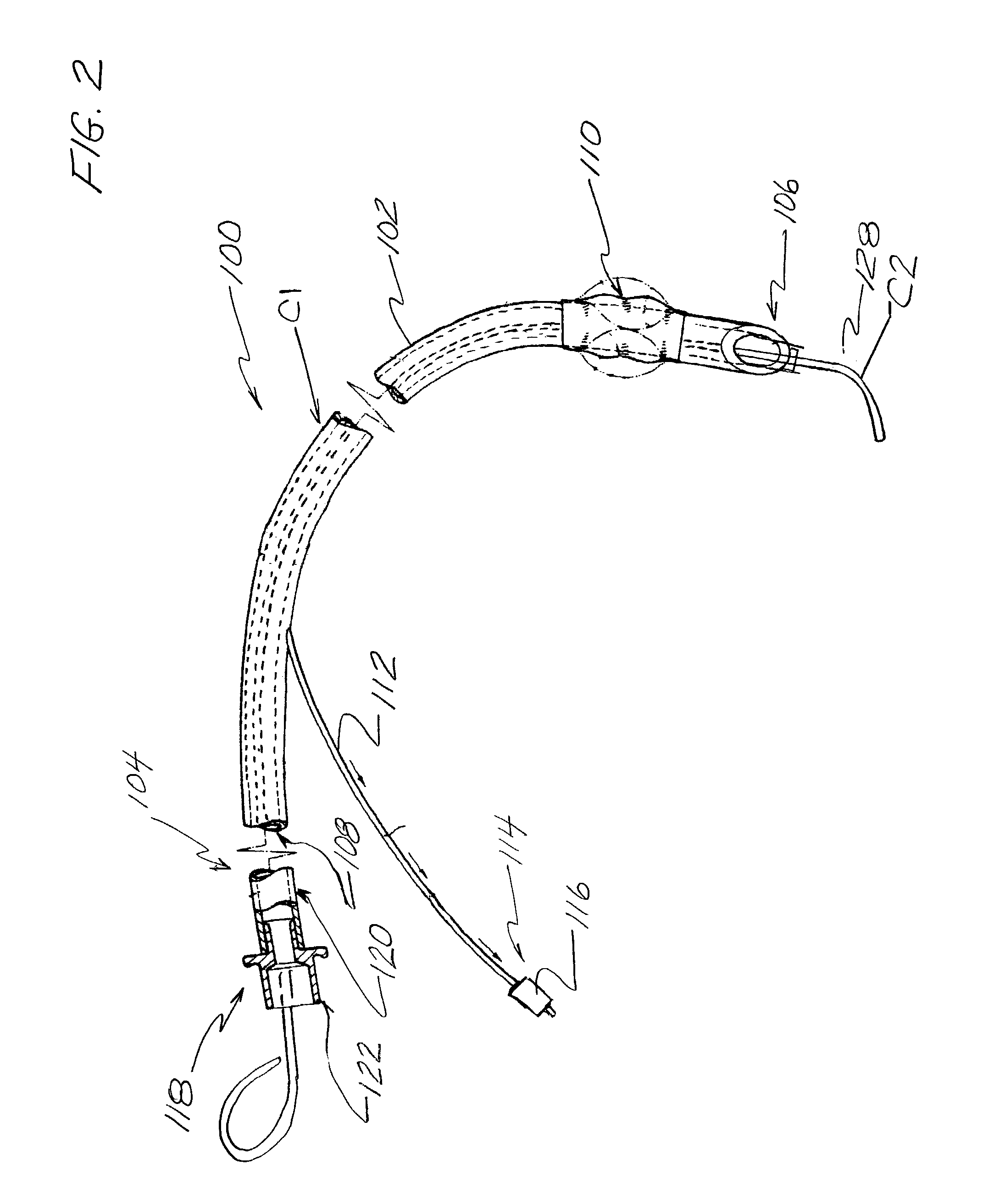Intubation device
a technology of intubation tube and endotracheal tube, which is applied in the field of intubation tube, can solve the problems of irreversible brain damage and death, difficult procedure of endotracheal tube placement, and increase the chance of esophageal intubation
- Summary
- Abstract
- Description
- Claims
- Application Information
AI Technical Summary
Benefits of technology
Problems solved by technology
Method used
Image
Examples
Embodiment Construction
[0037]The present invention relates to a method of performing endotracheal intubation and a new and novel intubation device for performing the method. In describing the preferred embodiments of the invention illustrated in the drawings, specific terminology will be resorted to for the sake of clarity. However, the invention is not intended to be limited to the specific terms so selected, and it is to be understood that each specific term includes all technical equivalents that operate in a similar manner to accomplish a similar purpose.
[0038]For purposes of the description of the present invention, the terms “forward” and “forwardly” are intended to refer to the direction towards the patient receiving the intubation device, whereas the terms “rear” and “rearwardly” are intended to refer to the direction away from the patient receiving the intubation device.
[0039]Referring to FIG. 1, a partial cross-section of a patient P is shown illustrating the mouth 2, the epiglottis 4, the nasop...
PUM
 Login to View More
Login to View More Abstract
Description
Claims
Application Information
 Login to View More
Login to View More - R&D
- Intellectual Property
- Life Sciences
- Materials
- Tech Scout
- Unparalleled Data Quality
- Higher Quality Content
- 60% Fewer Hallucinations
Browse by: Latest US Patents, China's latest patents, Technical Efficacy Thesaurus, Application Domain, Technology Topic, Popular Technical Reports.
© 2025 PatSnap. All rights reserved.Legal|Privacy policy|Modern Slavery Act Transparency Statement|Sitemap|About US| Contact US: help@patsnap.com



